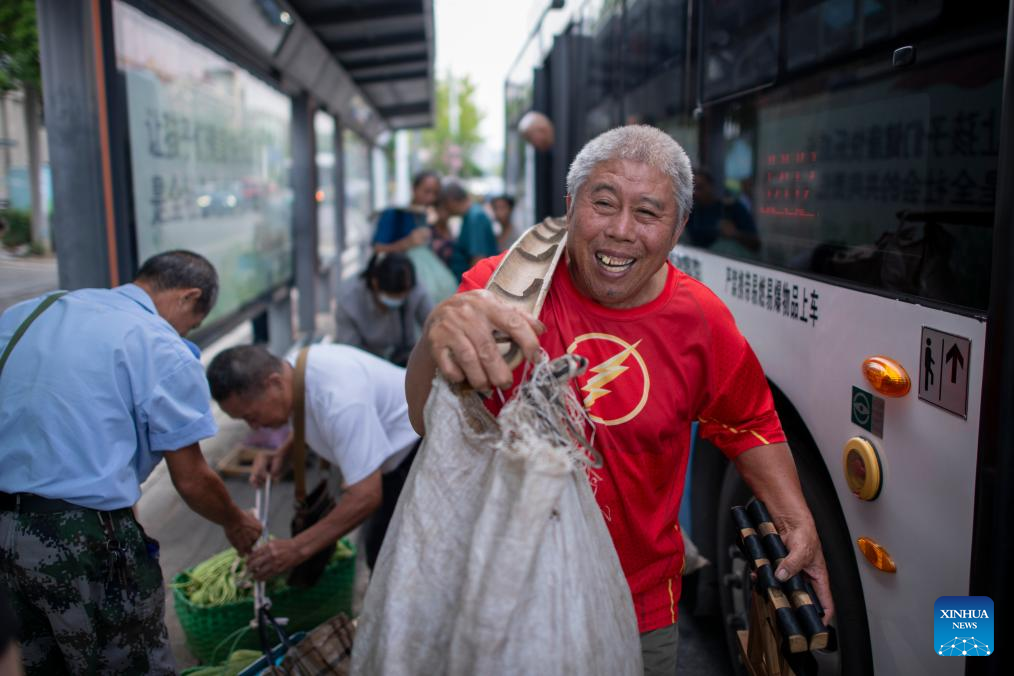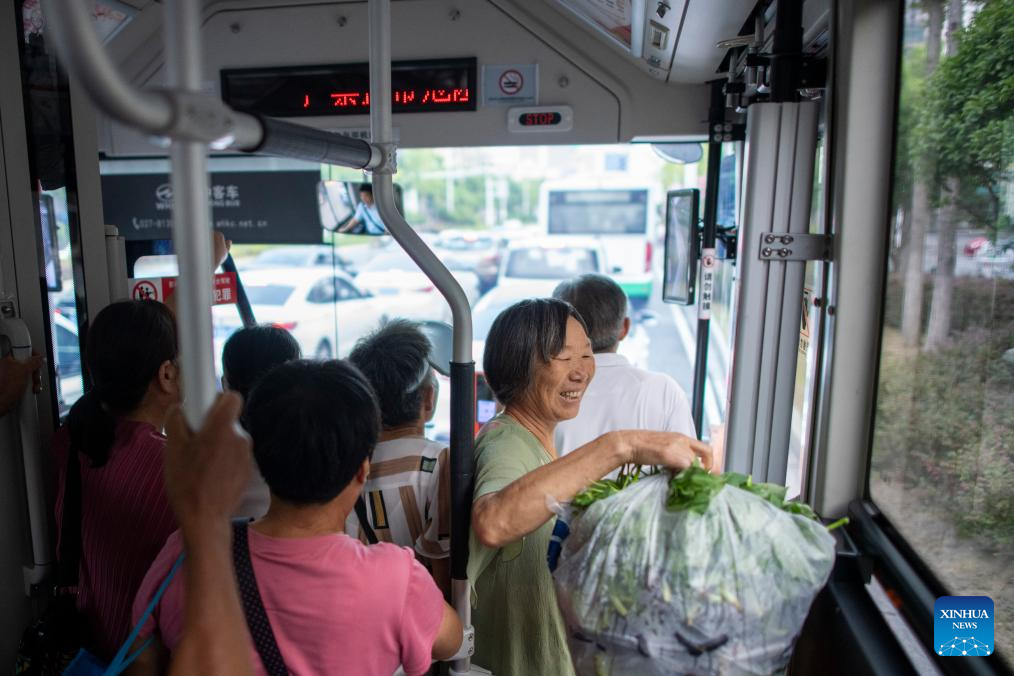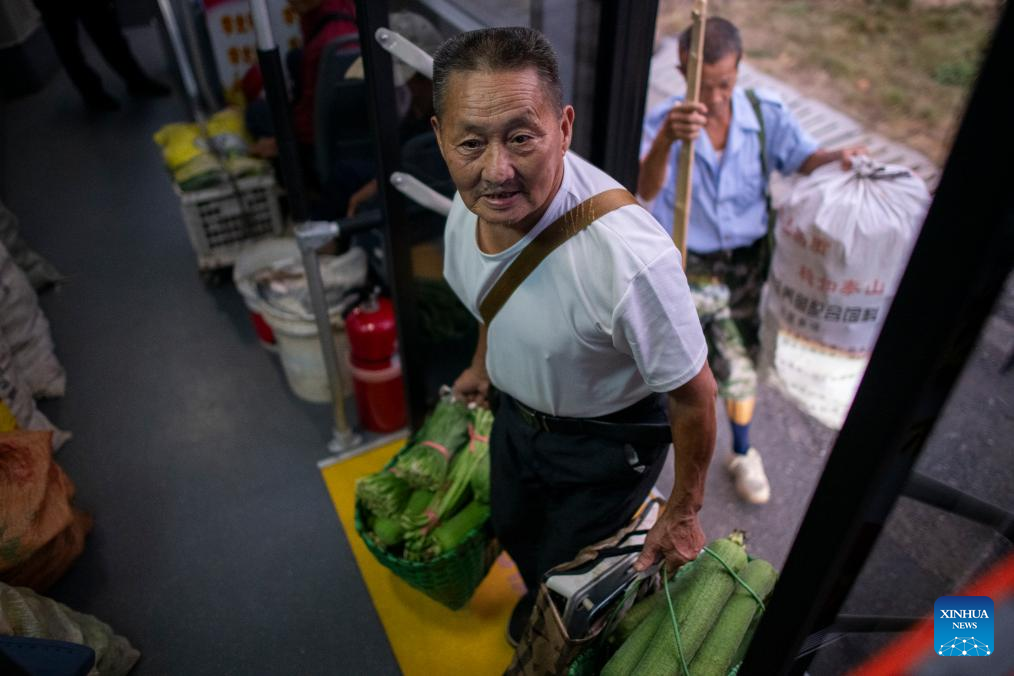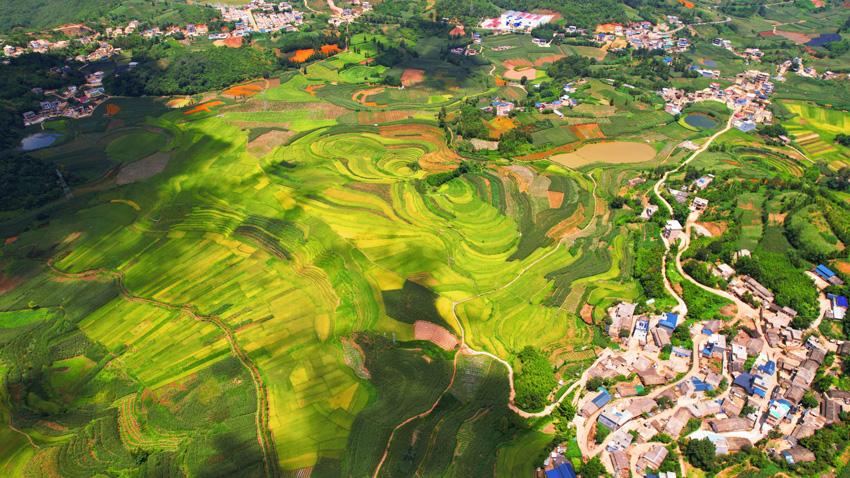Dedicated bus route helps farmers sell fresh food in urban markets

A farmer carrying bags of agricultural products for sale heads towards a market after getting off a dedicated bus in Wuhan, central China's Hubei Province, Sept. 3, 2024. (Xinhua/Wu Zhizun)
WUHAN, Sept. 25 (Xinhua) -- Before sunrise, more than a dozen farmers gather at He Station in a suburb of Wuhan, in central China's Hubei Province, waiting for a special bus, together with baskets and bags filled with fresh seasonal fruit and vegetables.
"People like eating fresh lotus seeds, so we pick them at around 3 a.m.," said Tu Jixing, adding that he can earn more than 300 yuan (about 42.73 U.S. dollars) a day by selling about 10 kg of lotus seeds.
Tu is one of many passengers along the bus route who catch the bus every morning, carrying bags and baskets filled with fresh food, including peppers, tomatoes, fish and eggs.
Taking the dedicated bus for vegetable transportation, farmers are able to sell agricultural and sideline products in a large wholesale market in the urban area of the city, more than 40 km away from He Station, the departure point of the route. The bus fare is 5 yuan for a single trip.
"It's much more convenient now, and it doesn't cost much for a round trip," said Tu.
Tu recalled that in the past, various areas around his village were not covered by public transport. Most people didn't want to rent vehicles or call a taxi to transport vegetables, as the cost was too high. So they would feed the surplus vegetables to livestock.
The problem faced by farmers attracted the attention of the local public transportation company. At the end of 2020, it established a new bus route to meet the needs of villagers selling goods.
The company has arranged staff to provide assistance at the stations where vegetable farmers gathered, and to clean the stains from soil, water and vegetable leaves, so that other types of passengers would not be affected.
Hu Simin, a driver on the dedicated bus route, said it has become an important mode of transport for people living in about 30 surrounding villages.
"On average, over a hundred villagers take the bus line to the urban area to sell vegetables a day," said Hu.
Hu has gradually become familiar with the farmers. Before the bus departs early in the morning, he always helps the elderly villagers move their goods, and sometimes farmers give him a handful of vegetables as a gift.
Some passengers have also become friends with each other. After selling their vegetables, they often hang out together in the urban area, then take the bus home and have a rest.
In China, many regions, such as Nanchang and Qingdao, have attempted to extend and open bus routes to suburbs in recent years, making it more convenient for farmers to commute between remote villages and urban areas, and making it easier for residents to buy fresh fruit and vegetables.

Farmers are pictured on a dedicated bus in Wuhan, central China's Hubei Province, Sept. 3, 2024. (Xinhua/Wu Zhizun)

A farmer boards a dedicated bus with baskets of fresh vegetables in Wuhan, central China's Hubei Province, Sept. 3, 2024. (Xinhua/Wu Zhizun)
Photos
Related Stories
- China adds over 30,000 rural place names to protection lists under geographic naming project
- Chinese vice premier calls for application of Green Rural Revival Program experience
- China fuels rural revitalization through tourism, specialty industries
- Chinese vice premier calls for consolidation of poverty alleviation work to advance rural revitalization
- Opportunities flourish in rural China as new professions bloom
Copyright © 2024 People's Daily Online. All Rights Reserved.









